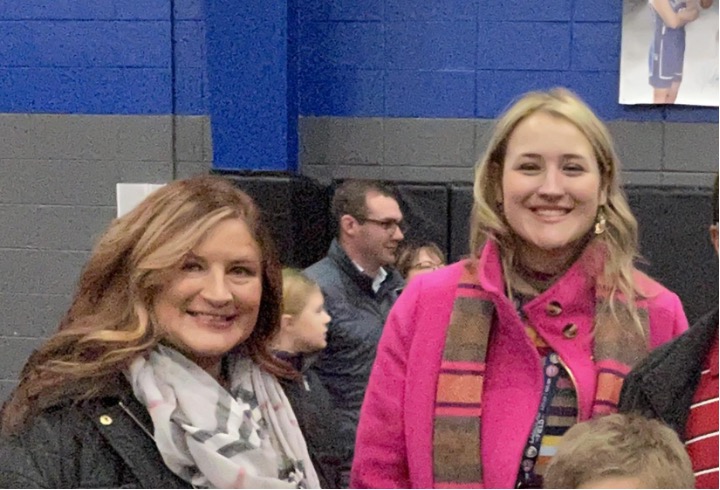
Prompt Images
More Than Our Ends: A reflection on sisterhood, addiction, and loss – PART IV
The following is a true story about love, and loss, and how the emotional rollercoaster of addiction affects so many. We are deeply humbled by the opportunity to share such a personal story from one of The Prompt community’s most prolific and beloved writers, Sarah Razner.
The story has been broken into five parts, which will be posted each day this week, to honor Jenna Razner. Read the prior installments here: Part I, Part II, and Part III. On Friday, we will also post the story in full.
Near the beginning and towards the end of Jenna’s illness, our family attended a family therapy group.
There, we could learn more about addiction and speak with others going through the same situation. One thing we learned about was enabling addiction, or doing things that allow a person’s addiction to continue by keeping them from hitting rock bottom. I realized then and I realize now that some of these attempts to help her may have constituted enabling, and we will never know if making a different choice would mean that she would still be here. I do know that while you may know you’re enabling someone, stopping yourself from doing so is incredibly difficult.
Because when someone is killing themselves in front of you, you try to do all you can to save them. However, you also learn that wanting sobriety for someone cannot will it into being. You can give them everything you think they need to stop, but until they realize they need to and that they can, it doesn’t matter. They have to push for it all on their own.
At the end of summer last year, Jenna did just that.
That same counselor I had spoken to, along with others from her organization, worked with Jenna to establish a plan for her treatment, and in turn, her life. She returned to 12-steps meetings and became more deeply involved with the sober community—her community. She focused on bettering her mental health and trying to break her patterns with relationships.
She found two new jobs, one with a friend from her 12-step program, who brought her on to help him with his business, and another as a barista at one of her favorite places, Starbucks. She quickly showed them the asset she was with her work ethic, readiness to learn, and positive attitude. In return, she had a job she loved going to, with people who saw the best in her and believed in her potential.
As Jenna became more involved in our lives than she had been in years, the sister and daughter we had known reappeared. She adored our niece and nephews and made the time to be with them, taking them to the park, letting them play with her many pets, or bringing out her caboodle of makeup and hair care products to do my niece’s hair in the way only she could.
Jenna made an effort with me, my sister, and my parents, too. My desk is marked by this effort, found in the little gifts she would get us on shopping trips. She loved to make us drinks at Starbucks for us to try, although since I did not share her high caffeine tolerance and iron stomach, I couldn’t handle most of them. Events that, for years, had only two sisters had three again.
It was better than it had been in a while, but that’s not to say tension didn’t remain. We still didn’t see eye-to-eye on everything. We butt heads, and we worried about things and people that Jenna believed were non-issues. Our choices mutually drove each other crazy.
And then there were wounds that hadn’t healed.
As Jenna tried to build inroads with us, I resisted. I feared the prospect of letting her close again all for the other shoe to drop like it had so many times before. I am ashamed to say that it wasn’t purely out of protection, though. I kept her at a distance to send her a message that just because she was sober and wanted to move forward didn’t mean that I did, or, more accurately, that I could. I was stuck in the trauma of it—the terror, the anguish. I couldn’t forget.
As much as we railed against losing Jenna while she was using, we also prepared for it too. After years of having her as at most a half-presence in our lives, we had learned to some extent what it was like to live without her. Now that we had her back, it was like I didn’t know what to do with all the emotions crammed within me—the joy of having her sober, the anger at all that had happened in the past few years, and the anxiety of going back to a place I never wanted to return.
I imagine it was the same for her as we came back in her life, too—joy for each moment she didn’t use, anger at us for the things we had done to try to make her stop, the anxiety of a sober life not being enough to sustain her, or being too much to handle. I think if we talked about it, we would’ve found common ground, roots in similar feelings. After all, in very different ways, we had both poured 10 years of ourselves into this battle; but as much as I wanted to heal, most of the time I couldn’t see past the pain.
If I could have, if I had the benefit of hindsight, I would have told her how proud I was of her each time I felt it, rather than handing the words out sporadically.
I do not doubt, or understand, how incredibly difficult it had to be for her to choose sobriety every moment, when every day a voice in her head was telling her not to, when she told us so often she felt like was starting back at square one and she had lost everything she had worked so hard for. We reminded her she didn’t, because just days, weeks, months before, she wasn’t sober, and now she was.
She may have been at square one, but she didn’t resign herself to staying there.
The longer she was sober, the more she began to envision a future she could build beyond that starting block. In the summer before she died, Jenna talked of moving up in Starbucks management, going back to school, and becoming a sober helper and AODA, who could walk alongside those in addiction and help guide them through as others had done for her.
In relationships, when she felt devalued or disrespected, I saw her stand in her worth and admit that she did not deserve some behaviors, that she deserved better. She made peace with friends she had lost. When it came time to face the repercussions of some of her actions while in active addiction, she did so with an accountability and grace I had never seen before in her, as well as more composure and bravery than I think I could’ve.
When our family spoke on her behalf, through tears, we shared this growth we had seen. Although I wish it didn’t have to happen, I will look back on that moment with gratitude, as it gave us a chance for us to tell her and for her to hear that through all the strife and conflict and self-imposed distance, we loved her, we saw her—all she had lost and all she had reclaimed— and we were beyond proud of her.




